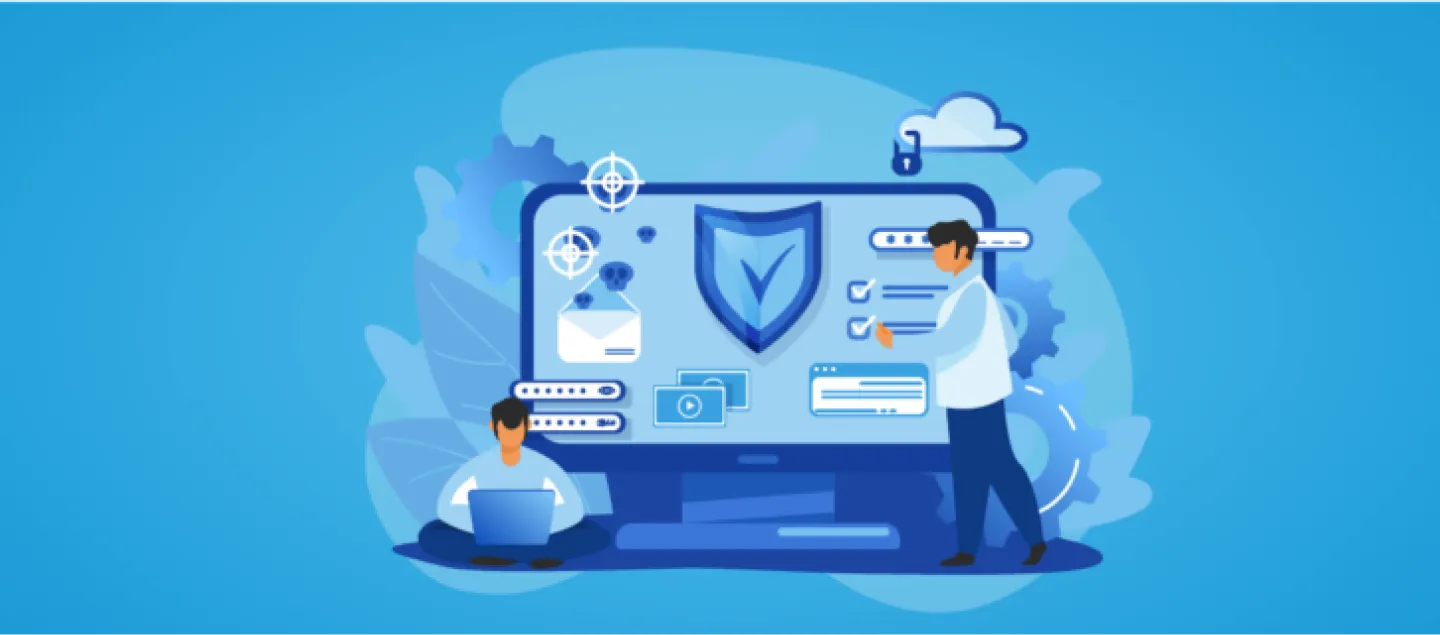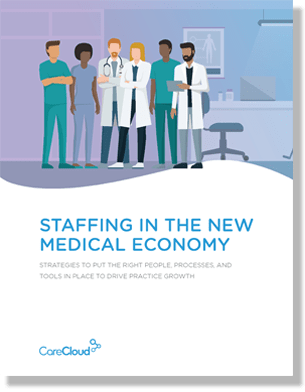WHAT IS HEALTHCARE CYBERSECURITY? A COMPREHENSIVE OVERVIEW
Technological advances, such as e-health records and the practice of telemedicine, have enhanced the healthcare delivery system and its functionality. However, these advancements come with a growing concern: challenges in cybersecurity in the healthcare industry. Cybersecurity is now a paramount factor in global healthcare. From the three aspects of protecting patient data, defending the reputation of healthcare organizations, and delivering quality care, defenses and awareness must be fortified.
By paying attention and teaming up, their growth can help them prosper safely in the emerging concept of a digitalized healthcare sector. Now, let’s take a closer look at the effects of these threats on patient safety, privacy issues, and possible measures for the security of valuable information within healthcare organizations.
WHAT IS HEALTHCARE CYBERSECURITY?
Healthcare cybersecurity safeguards sensitive medical information, healthcare systems, and vital health infrastructure from cyber threats and unauthorized entry. In today’s world, healthcare is becoming more connected and reliant on technology. Healthcare organizations handle personal and confidential data like patient records, medical histories, insurance details, and payment information.
Healthcare cybersecurity strives to set up a complete structure of rules, methods, and technologies that protect healthcare data from being accessed without permission, data breaches, and other harmful activities. This includes using robust authentication and access controls, encrypting important information, keeping software and systems updated, and checking network traffic for suspicious signs while doing thorough risk evaluations.
Other aspects of healthcare cybersecurity include:
- Educating healthcare professionals about the best practices for data protection.
- Maintaining incident response plans.
- Staying vigilant against emerging cyber threats.
Effective cybersecurity measures ensure patient privacy, uninterrupted care, and the integrity of critical healthcare systems.
WHY IS CYBERSECURITY IMPORTANT IN HEALTHCARE?
In healthcare, cybersecurity is highly significant for many vital reasons, which are listed as follows:
- Every healthcare organization works with many patients’ personal, medical, and financial data, making it a desirable target for hackers.
- Black markets especially prize this data as it can be used in identity theft, insurance fraud, and other vile deeds by cybercriminals.
- Violations of the privacy of patients’ information are likely to cost the patient a lot of money and time and will, in the process, erode their confidence in the healthcare system.
- Adequate cybersecurity measures protect patients’ rights to privacy and confidentiality, integrity of the data collected, and enhancing the credibility of health facilities.
- Security in the use of the internet to deliver essential healthcare services and products is necessary to keep EHR safe, and continuity of patient care is vital.
- Cyber threats give rise to delays in diagnosing diseases and the discontinuity of intents to treat, and they can endanger patient lives.
- Caring for high levels of cybersecurity minimizes the likelihood of disruptions of services and malicious intrusions into the system.
- Sophisticated cyber security helps health facilities to run effectively and provide standard and risk-free care to patients.
As organizations advance towards a more digitally connected healthcare model, proactive cybersecurity is the cornerstone of protecting key activities in healthcare and people’s health.
TOP HEALTHCARE CYBERSECURITY CHALLENGES
DATA BREACHES
Patient data is precious on the black market. It is, therefore, crucial to protect sensitive data from attacks on different systems, networks, and devices. Implement robust access controls to ensure only authorized individuals can access systems and data stores.
RANSOMWARE
Ransomware is a significant danger for healthcare establishments because if their systems get harmed, it could stop significant operations and patient services. It’s difficult to protect all system parts from ransomware, make frequent copies, or train employees to recognize and handle possible ransomware attacks.
INSIDER THREATS
Insider threats are a severe risk to healthcare organizations, whether from deliberate acts or unintentional mistakes. Employees or those with contractor status who access and share patient data without proper authorization can cause data breaches. The difficulty lies in setting up strong access controls, keeping an eye on what users do, and teaching workers how crucial it is to protect patient information.
IOT AND MEDICAL DEVICE SECURITY
Security for IoT devices and the inclusion of medical devices into networks is a significant issue due to the increased use. It can be challenging to secure these devices, make them compatible with current systems, and fix vulnerabilities. This may require strong network division, frequent patching, and close collaboration with device creators.
TOP HEALTHCARE CYBERSECURITY SOLUTIONS
ENCRYPTION
Encryption changes sensitive data into a coded form that can’t be read or used by unauthorized users. Through the encryption of patient data in the storage, transmission, and processing stages, healthcare organizations can safeguard patients’ privacy.
ACCESS CONTROLS
Access controls can be defined as measures to avoid a threat that violates the confidentiality of health-related information. These controls include protecting the user identities using passwords and validating users using other forms of authentication, such as two-factor authentication. Also, logical access should be implemented to limit or grant access to data dependent on the employee’s position in the organization. This principle of least privilege reduces the vulnerability of an organization’s data and increases general system security.
NETWORK SEGMENTATION
Segmenting a healthcare organization’s network means splitting it into subnetworks. This separation supports the control of possible security violations by separating critical data and limiting horizontal movement within the network. Segmentation of the network reduces harm and access to other areas if one segment is broken into, safeguarding overall safety even in such cases.
REGULAR SECURITY ASSESSMENTS AND PENETRATION TESTING
Regular security assessments help us pre-empt any attack on healthcare systems and networks by attackers. By creating simulations that imitate real-life cyber-attacks, we can assess the strength of our security system, locate weak points, and decide which issues should be fixed first.
5 BEST HEALTHCARE CYBERSECURITY COMPANIES
FORTINET
Fortinet provides robust cybersecurity solutions for healthcare, such as network security, endpoint protection, and threat intelligence. They make platforms to protect critical medical systems and protect private patient information.
CYLANCE
Cylance is an expert in AI-powered endpoint security, applying machine learning algorithms to find and prevent advanced dangers such as malware and ransomware. The solutions they offer are known for their proactive defense against cyber threats.
CROWDSTRIKE
This cloud-based endpoint protection platform uses machine learning and behavioral analytics to identify and deal with cyber threats instantly. CrowdStrike gives healthcare groups strong security, ensuring their crucial data and systems are kept safe.
FIREEYE
FireEye is a top supplier of threat intelligence and cybersecurity solutions. They offer services such as incident response, managed detection and response, and security assessments to help healthcare organizations identify and address cyber threats before they escalate.
CONCLUSION
Healthcare cybersecurity is critical in today’s medical field as cyber-attack threats are alarmingly growing. Protecting patient data, keeping essential healthcare services working, and preserving their trust are crucial. Therefore, healthcare organizations must not hesitate to invest adequately in cybersecurity that involves access controls, encryption methods, and separating networks, in addition to superior systems that can identify and respond to advanced threats.




